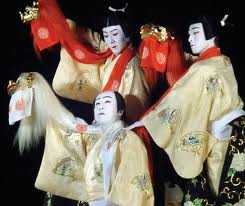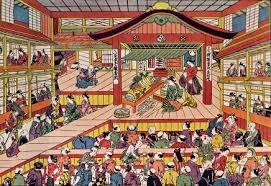Every three to four years since the 1970s, the same ritual has been enacted in the Bay Area between BART and its unions.
Negotiations for a new contract commence several months before the end of the contract in late June. No resolution is achieved. The unions hold a very public vote to authorize a strike at which 99% of the vote is to authorize a strike. BART spokespersons note the high pay and benefits of BART workers. The workers deny, and say they care about the safety of riders. The two sides argue through the press. Settlement talks only become serious on the evening prior to the strike deadline.
The process is one of highly stylized movements: as Mickey Kaus would say, political Kabuki Theatre. Other actors assume their roles: local politicians denounce BART’s intransigence, the “man on the street” interviews denounce union greed, the San Francisco Chronicle editorial page calls for both sides to compromise.
Two times since 1980, BART workers have gone on strike. Once was in 1997 (for six days), the second time was yesterday. All other times, negotiations have come down to the last night, before a settlement was achieved.
I was on the BART Board of Directors from 1988-1996, and involved in the negotiations in 1991 and 1994. Both times, the negotiations came down to the final hours. In 1994, Vice President Al Gore helped broker an additional settlement period, and an agreement was reached.
Last Friday and throughout the weekend, I spoke to other former BART directors. We all associate strongly with the transit district, the workforce and Board. We talked of urging the parties to continue negotiations if no agreement were reached by Sunday night. The negotiations showed some promise Sunday afternoon, but collapsed on Sunday night. By the 10:00 pm news on Sunday, a strike was announced.
Monday morning’s commute started much earlier than usual, and the MacArthur Maze was backed up by 6:00 am. However, the bigger transportation story was how commuters adapted and adjusted. The Carquinez Bridge to the Bay Bridge toll plaza took 24 minutes longer than usual—significant but no overwhelming. By the end of the morning commute, the California Highway Patrol described the traffic as not much different than regular commute days.
Here at Sedgwick LLP, located in the middle of the financial district of San Francisco, the majority of attorneys and staff use public transit on any given day, most of all BART. Some shifted from BART to AC Transit, some tried the ferry system (which tripled its ridership in the morning commute), some came together in carpools. Gina, Tracey and Tracey’s husband drove in from Pleasanton, beginning at 5:40 am and arriving by 7:10. A group of other attorneys in the Emeryville-Berkeley area were on the road by 5:15 am and in the City by 6:00am; another group came in from Daly City at 5:30 am. Gas and parking costs ($32 per day in the financial district) were split 3-4 ways. These arrangements may not be sustainable in the long run, but allow people to get by until the strike is settled.
It will be settled, sooner rather than later. Neither side has an appetite for a lengthy strike. The BART workforce has been under fire on all of the talk shows. But it is a highly professional workforce, with strong commitment to the system. BART workers have fought to keep the system open when protesters, such as Anonymous and Occupy, have tried to close it in the past. I don’t know one BART worker who wants to strike.
It may be that after a settlement is reached, we turn to the unthinkable over the past 40 years: developing a different process for reaching a fair agreement for both sides.
Update, Tuesday morning (7-2), 7:40 am: Talks have not yet resumed. I spoke to several BART Directors yesterday morning who expected that the unions would announce by late afternoon that they were returning to the bargaining table. This did not occur, and has not yet occurred.
Meanwhile, the Monday evening commute turned out to be far worse than the morning commute. Television reports showed commuters waiting up to two hours for buses from downtown San Francisco to the East Bay. The emerging Water Emergency Transportation Authority (the ferry system) came through, carrying three times its usual passenger load. Still, there were long lines at the San Francisco ferry terminal.
Further, this morning vehicle traffic has gotten worse, not better. Appears that a part of the workforce stayed home on Monday, thinking it might be a one-day strike. Gina, Tracey and Tracey’s husband made it in okay this morning from Pleasanton, but only because they left at 5:30 am, and were able to use a FasTrak card this time.



